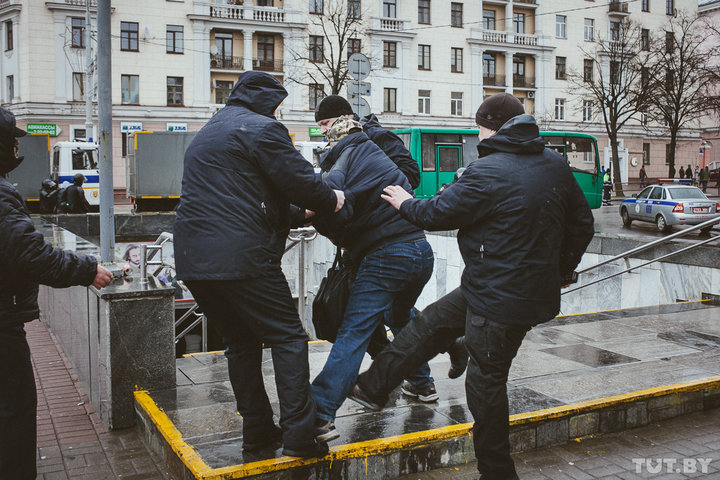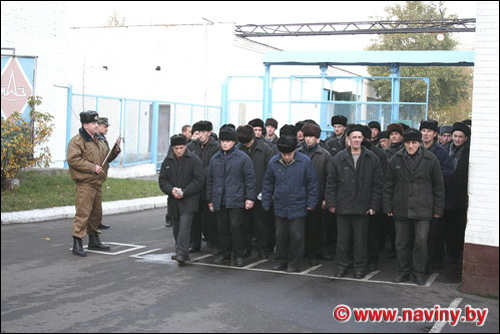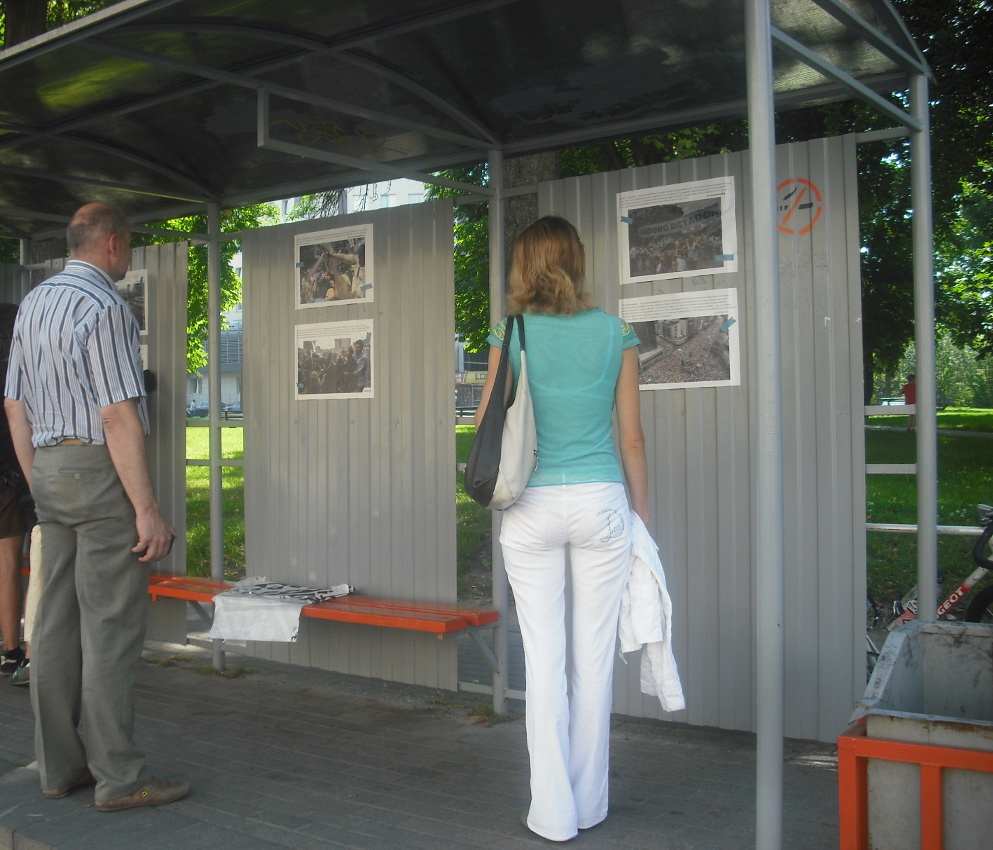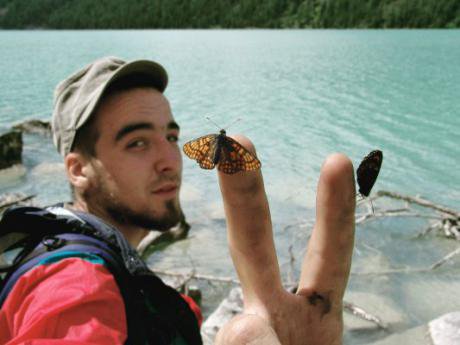Belarus hosts II European Games in June 2019. At the moment, the authorities take a huge effort to present Belarus as a friendly country of law and order, absolutely safe for foreigners. But this has nothing to do with reality.
My name is Mikola Dziadok, I am a journalist, blogger and former political prisoner from Minsk, Belarus. And against the background of the governmental lies, I am going to tell you about how safe Belarus is for foreign citizens.
Belarus has one of the highest incarceration rates in Europe. Moreover, the police per capita rate of Belarus is 1442 police officers per 100,000 population, which is the biggest in the world. The Freedom House ranks Belarus 176 in the human right index, accompanied by Congo and Cameroon.
Belarusian president Aleksandr Lukashenko has been in power for 25 years already. Also, many things that are legal in other countries are illegal in Belarus. For example, the Belarusian criminal code has an article criminalising assembling in a certain space without government permission, criminal punishment for participating in anti-government organisations, and even punishment for “discrediting the Republic of Belarus” which is wide enough to imprison any person critical of authority. In Belarus, police systematically raid gay clubs and parties of swingers. The latter are accused of “organising prostitution.”
Belarus was NOT included in the Global Finance magazine rating of the safest countries.
On 17th May 2018, the International Day Against Homophobia, the British embassy in Minsk hung up a rainbow flag. The Belarusian Ministry of Internal Affairs, headed by minister Shunevich, issued a statement titled “We stand for truth,” defaming the British officials who did it, accusing them of the propaganda of “false values.”
Belarusian drug policy is one of the harshest in the world. In 2014, the president issued a decree, according to which distribution of drugs is punished by up to 25 years in prison. What falls under the concept of the crime? Mostly that is just sharing a joint with your friends. By now, around 8 000 people, mostly youth, serve their terms in terrible conditions of Belarusian prisons for such a crime. Most common terms are 8-12 years. In 2014, Lukashenko demanded to create special prisons for “drug dealers”: “Make them ask for death,” he said to his ministers. And they did. People are dying in Belarusian prisons as a result of tortures, lack of medical care, and suicides.
The mothers of the imprisoned have tried many ways to fight for their sons, including hunger strikes.
At April, 4th, Belarusian authorities demolished 70 handmade crosses, surrounding the Kurapaty a forest near Minsk where from 40 000 to 200 000 of people were killed during the Stalin’s repressions. Before the demolition was made, the forest, where the crosses were standing, was encircled by the police. 15 opposition activists, who tried to stop the demolition were detained. Few days before president Lukashenko said that the sight of the crosses irritates him when he drives by – they “spoil the look”. The Stalin’s repressions still were not condemned by the Belarus officials.
But what about foreigners? If you think that all above-mentioned only concerns Belarusians, you are wrong. The punitive system of Belarus does not care whom to punish. And here are the most well-known stories of foreigners, who thought that visiting Belarus was a good idea:
Daichi Yoshida is a 27-year old well-known Japanese cartoonist, who was visiting an anime festival in Kyiv, Ukraine. There, he bought parts of an antique rifle in a shop. Kyiv customs were totally OK about it, but after getting to a transit area of the Minsk airport, Daichi was searched, detained, and soon sentenced to 4,5 years of imprisonment. In prison, Daichi went through depression, syncope and blennocystitis, but never got decent treatment.
No one paid attention that these parts of the rifle could not be used for shooting. No one paid attention that Ukrainian customs had no questions to Daichi. They found him guilty. Daichi spent almost 2 years in prison. All the higher instance courts refused to review his case. He was released after the intervention of the Japanese embassy and wide press coverage of this story.
Read his story here.
Jolan Viaud, a 24-year old French citizen, was travelling to Ukraine from Lithuania through Belarus. In Lithuania, he bought a souvenir cartridge. While passing the Lithuania-Belarus border he was searched and accused of not declaring the cartridge. Basically, he simply could not do this, because Belarusian border patrol knows neither English nor French. He was accused of smuggling the weapons and detained immediately.
Jolan Viaud’s case is an exception in some way. He was acquitted during the trial and set free. Nevertheless, he spent two years in custody.
More details about his story here.
Andreus Golubeus, a Lithuanian, bought a painkiller called Tramadol for his wife who lives in Belarus. But in Belarus, this painkiller is considered a drug. On the Belarusian border, he was detained and accused of smuggling drugs. Neither the court nor the prosecutor cared about the fact that he was not concealing Tramadol but gave it to customs officers voluntary. Andreus got 3,5 years in a high-security prison. His wife, who is confined to a wheelchair, was left without his care and the medicine she needed.
Now Andreus is in prison, and prison administration prevents him from applying to international bodies. They just do not let out the complaints he files.
Alan Smith is a British businessman. He was acquainted with a woman from Kurdistan, who was trying to get refugee status in Lithuania. After this woman was detained on the Belarus-Lithuania border, Alan Smith was detained in 2016 for allegedly “organising illegal migration.” The connection between Alan and that woman were enough for such an accusation.
In prison, he was pressed by the administration to plead guilty, stayed in isolation because he speaks neither Belarusian nor Russian and faced with all the bad conditions.
He served his full term being deprived of visits from his relatives, food parcels and was allowed a minimum sum for buying goods in the prison shop, which is comparable to torture under Belarusian prison conditions. Upon release, he told the press a lot about the abuses and torture that prisoners experience and the unjust sentences from the Belarusian courts.
In the penitentiary, Alan drew awesome cartoons depicting the Belarusian state and penal system. Most of them were smuggled outside illegally. None of the higher instance courts considered his appeals. The British ambassador was not too active in improving his fate: no one would like to spoil the international relations because of one citizen.
You should keep in mind that these are only the examples which became known thanks to the Belarusian press. Many other foreigners do not enjoy the attention of human right defenders or ambassadors, like Columbian citizen Gedi Kalderon who is prevented by the prison administration from meeting with ambassadors from his country.
Human right defenders who file appeals to the Constitutional Court demanding to make the life of foreigners in Belarusian prisons easier, often get formal and negative answers.
Apparently, the Belarusian state continues to assert that Belarus is safe and hospitable for foreigners – because they need your money. But in return, they will never guarantee your safety.




